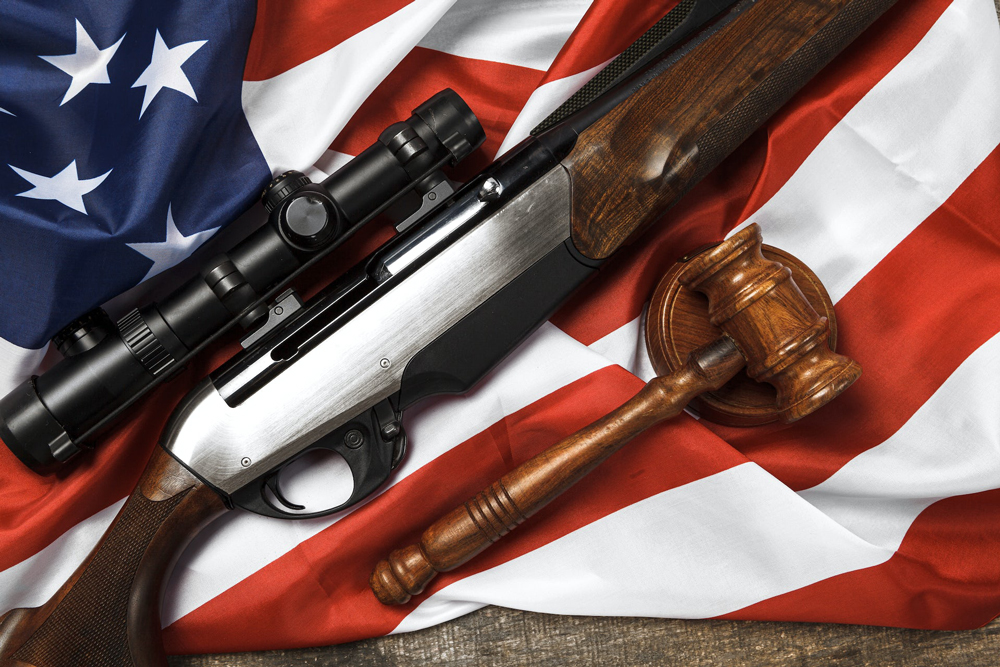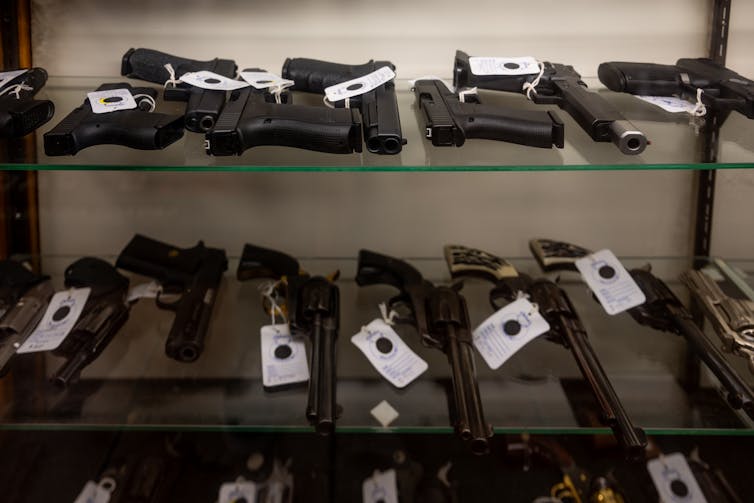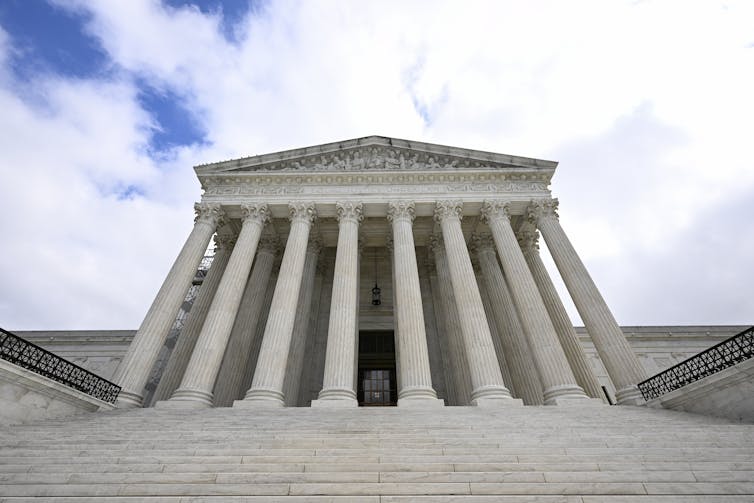
By Morgan Marietta
Should it be legal to take away the guns of people who are under a domestic violence protective order, which aims to shield victims from their abusers?
That’s the question posed in one of the biggest cases of the current Supreme Court term, focused on the limits of individual gun rights, which will be argued before the justices on Nov. 7.
The case, U.S. v. Rahimi, comes in the wake of revolutionary changes in doctrine over the past two court terms. Now, justices must grapple with how far the new principles will reach.
Two years ago, the court began what many consider to be a constitutional revolution.
The new supermajority of six conservative justices rapidly introduced new doctrines across a range of controversies, including abortion, guns, religion and race.
When the court announces a new principle – for example, a limit on the powers of a specific part of government – citizens and lawyers are not sure of the full ramifications of the new rule. How far will it go? What other areas of law will come under the same umbrella?
In a revolutionary period, aggressive litigants will push the boundaries of the new doctrine, attempting to stretch it to their advantage. After a period of uncertainty, a case that defines the limits on the new rule is likely to emerge.

Brandon Bell/Getty Images
Focus on guns
U.S. v. Rahimi may be the limiting case for gun rights, identifying the stopping point of the recent changes in Second Amendment doctrine.
Zackey Rahimi is a convicted drug dealer and violent criminal who also had a restraining order in place after assaulting his girlfriend. The court will decide whether the federal law prohibiting the possession of firearms by someone subject to a domestic violence restraining order violates the Second Amendment.
In the 2022 case of New York Rifle & Pistol v. Bruen, the court announced a new understanding of the Second Amendment. The amendment had long been understood to recognize a limited right to bear arms. Under the Bruen ruling, the amendment instead describes an individual right to carry a gun for self-protection in most places in society, expanding its range to the level of other constitutional rights such as freedom of religion or speech, which apply in public spaces.
However, the court’s conservative justices also tend to argue that constitutional rights are balanced by responsibilities to promote a functional society, a concept known as “ordered liberty.” The practical question is how to know the proper balance between liberty and order. If the right to carry a gun can be regulated but not eradicated, limited but not eliminated, where is the line?
The court’s answer in Bruen is history – a current law does not have to match a specific historical one exactly, but it has to be similar in form and purpose. Whatever gun regulations Americans allowed during the early republic – the critical period from around the 1780s to around the 1860s at the time of the Civil War – are allowable now, with the exception of any that would violate principles added to the Constitution more recently, such as racial equality under the 14th Amendment.

Celal Gunes/Anadolu Agency via Getty Images
Justice Clarence Thomas, the author of the Bruen ruling, described it this way: The government must “identify a well-established and representative historical analogue, not a historical twin.” Thomas argued in Bruen that no such historical analogue existed for the limits New York imposed, invalidating the state’s ban on concealed carry permits.
The Rahimi case will provide a critical test of this historical approach to the boundaries of constitutional rights.
Historians have presented evidence that there were widespread laws and practices during the early republic limiting gun possession by individuals, like Rahimi, who were judged to be dangerous. However, those dangers did not include domestic violence, which was not deemed the same important concern then that it is now.
The court may consider the laws prevalent in the early republic, which regulated those who “go armed offensively” or “to the fear and terror of any person,” to be analogous to contemporary laws restraining those under a domestic violence restraining order. If so, the ruling will likely uphold Rahimi’s conviction and limit gun rights.
On the other hand, if the court reads those historical standards as more narrow and specific than the contemporary ban on gun possession while under a restraining order, those limits will be struck down.
This story incorporates sections of a previous story about the Supreme Court published on Sept. 26, 2023.
![]()
Morgan Marietta is Professor of Political Science at the University of Texas at Arlington.





























Pogo says
@One clear thing
It will be a convincing demonstration of the sanity, or insanity, of the majority of the SCOTUS.
Directly related
https://www.gunviolencearchive.org/
ASF says
NO WAY those legally found guilty of Domestic Abuse ahsould have access to firearms!
Any police officer can tell you from experience that Domestic Abuse cases are the highest roisk cases to have to respond to.
Shark says
What about a police officer guilty of domestic abuse ???
Laurel says
Shark: Take away the badge, and the gun.
Robin says
Let’s review the 18th and 19th century comparisons to contemporary life. During the former, slavery existed, a woman was considered the ‘property’ of her father and later, her husband, marital rape was a non sequester, and oh yes, both slaves and women could not own property, vote, or attend educational facilities of their choice.
Thomas’ reasoning really falls on its face.
Laurel says
Robin: Ah, but the vacations were nice.
Eileen Gernet says
If you were the recipient of abuse you wouldn’t even ask such a stupid question. Of course not. Most abusers do not get reported because it enraged the abuser. Unless you have been woken up at 2am to be beaten with your special needs baby in the same room you haven’t lived a life of fear. Divorce doesn’t stop them. Peace bond doesn’t stop them. Fists crack ribs, give concussions, break jaws, what do you think a fun would do.
Skibum says
This issue before the Supreme Court should be a no-brainer, and I am hoping almost beyond hope that ALL of the justices make the right decision in this case and put this matter to bed. The individual in this case who is appealing is a violent criminal, and should not be allowed to have any firearms anywhere near him, ever!
Bill C says
Should domestic abusers have firearms? Same as asking should drunk driving be legal.
Shark says
When you have a supreme court owned by the nra – who knows what the decision will be !!!